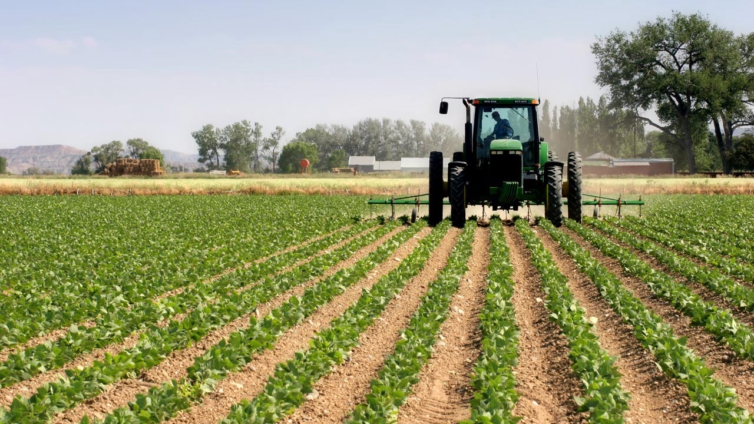Government says it has consistently exceeded the set target of 6% for annual growth rate for the agricultural sector.
According to the Ministry of Food and Agriculture, programmes such as Planting for Food and Jobs, One District; One Factory, One District; One Warehouse have led to the annual growth of 6.3% for the past five years as compared to 2.7% in 2016.
Speaking at a Roundtable Discussion organised by Mennonite Economic Development Associates (MEDA), Head of Agribusiness Unit at the Ministry, Jeremy Agyemang indicated that the initiatives by government have led to significant growth in the sector, hence causing surpluses of food in the system.
“Government has always prioritised agriculture as it is reflected in all national sectoral development, policies, strategies and plans. Targeted government actions combined with the sector’s potential have ensured that its annual growth rate has consistently exceeded the target set at 6% from 2017 to 2021,” he said.
He explained that the success of government’s action are obvious from the figures.
“Since inception of the programme, the sector growth rate over the past five years averaged 6.3% as compared to the 2.7% in 2016,” he said.
Mennonite Economic Development Associates (MEDA) in partnership with the Canadian High Commission and the Ministry of Food and Agriculture organised the Roundtable Discussion.
The Country Director for MEDA, Robert Austin indicated that forming strategic partnerships is key to improving the agriculture sector, hence the roundtable discussion.
“MEDA has been in the development space for the last 10 years carrying out project specific interventions. MEDA has also recently developed a new strategic plan which calls for an effort to create sustainable decent jobs in agricultural sectors. Now these ambitious objectives cannot be achieved by MEDA alone we see very importantly partnership as critical to take this to scale,” he emphasised.
Senior Vice President of Programmes at MEDA, Derek Cameron disclosed that his outfit is supporting agriculture in Ghana because it has great potential as it’s a huge employer in the country.
“Our real focus in the organisation is creating decent work. The agriculture sector is already a huge employer both to processing and other secondary levels, back to the primary employment and self-employment on the farm. So, we see huge potential to help smallholder farmers to grow and expand their businesses since agriculture is a business. Hence also collaborating with the private sector in Ghana to help to create decent jobs off and on the farm in the agricultural sector,” he explained.
The Roundtable Discussion was based on the theme “Investing in Agriculture for Employment in Ghana”.
Latest Stories
-
Tyson slaps Jake Paul during weigh-in
53 seconds -
Atebubuman Education Secretariat launches radio-based classes to improve BECE success rate
5 mins -
Don’t go on strike, let’s negotiate – NLC to TEWU
16 mins -
KNUST’s Prof Antwi-Agyei appointed to UN panel of experts for Resilient Food Systems Report
17 mins -
Bawumia’s promise for free dialysis treatment empty campaign gimmick – Mintah Akandoh
35 mins -
Former Asante Kotoko coach Michael Osei passes on at 53
49 mins -
Over 3,600 people from 80 countries gather for Bishop Dag Heward-Mills’ Homecoming Conference
1 hour -
Ghana’s death by galamsey: Who will bell the cat?
1 hour -
Oheneba Adusei Poku
1 hour -
Outgoing Effia MP Joseph Cudjoe supports NPP campaign to retain seat
2 hours -
Enimil Ashon: 2016/2020 promises; Gabby vrs McDan
2 hours -
Education Ministry complicit in expired rice distribution to SHS – Ablakwa
2 hours -
100 years after exile: Seychelles honours Asantehene Prempeh I
2 hours -
UK announces £74m clean cooking initiative, including support for Ghana
2 hours -
Wese Obiabaka awarded honorary senior membership by CIBN
2 hours

